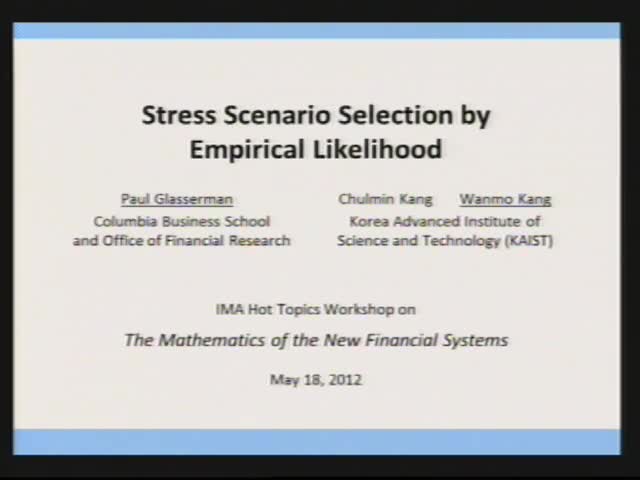Stress Scenario Selection by Empirical Likelihood
Presenters
May 18, 2012
Keywords:
- Empirical decision procedures
MSC:
- 62C12
Abstract
This paper develops methods for selecting and analyzing stress scenarios. We begin by focusing on reverse stress testing --- finding the most likely scenarios leading to losses exceeding a given threshold. We approach this problem using a nonparametric empirical likelihood estimator (in the sense of Owen (2001)) of the conditional mean of the underlying market factors given large losses. We then scale the confidence regions for the conditional mean by a factor that depends on the tails of the market factors to estimate the most likely loss scenarios. We provide rigorous justification for the confidence regions and the scaling procedure in three models of the joint distribution of market factors with qualitatively different tail behavior: multivariate normal (light-tailed), multivariate Laplace (exponentially tailed), and multivariate-t (regularly varying). The key to this analysis (and the differences across the three cases) lies in the asymptotics of the conditional variances and covariances in extremes. These results also lead to asymptotics for marginal expected shortfall and the corresponding variance, conditional on extreme losses; we combine these results with empirical likelihood significance tests of systemic risk rankings based on marginal expected shortfall. We further apply these ideas to compare macro stress scenarios and to propose a scenario sampling method for exploring regions of large losses. This is joint work with Chulmin Kang and Wanmo Kang.
